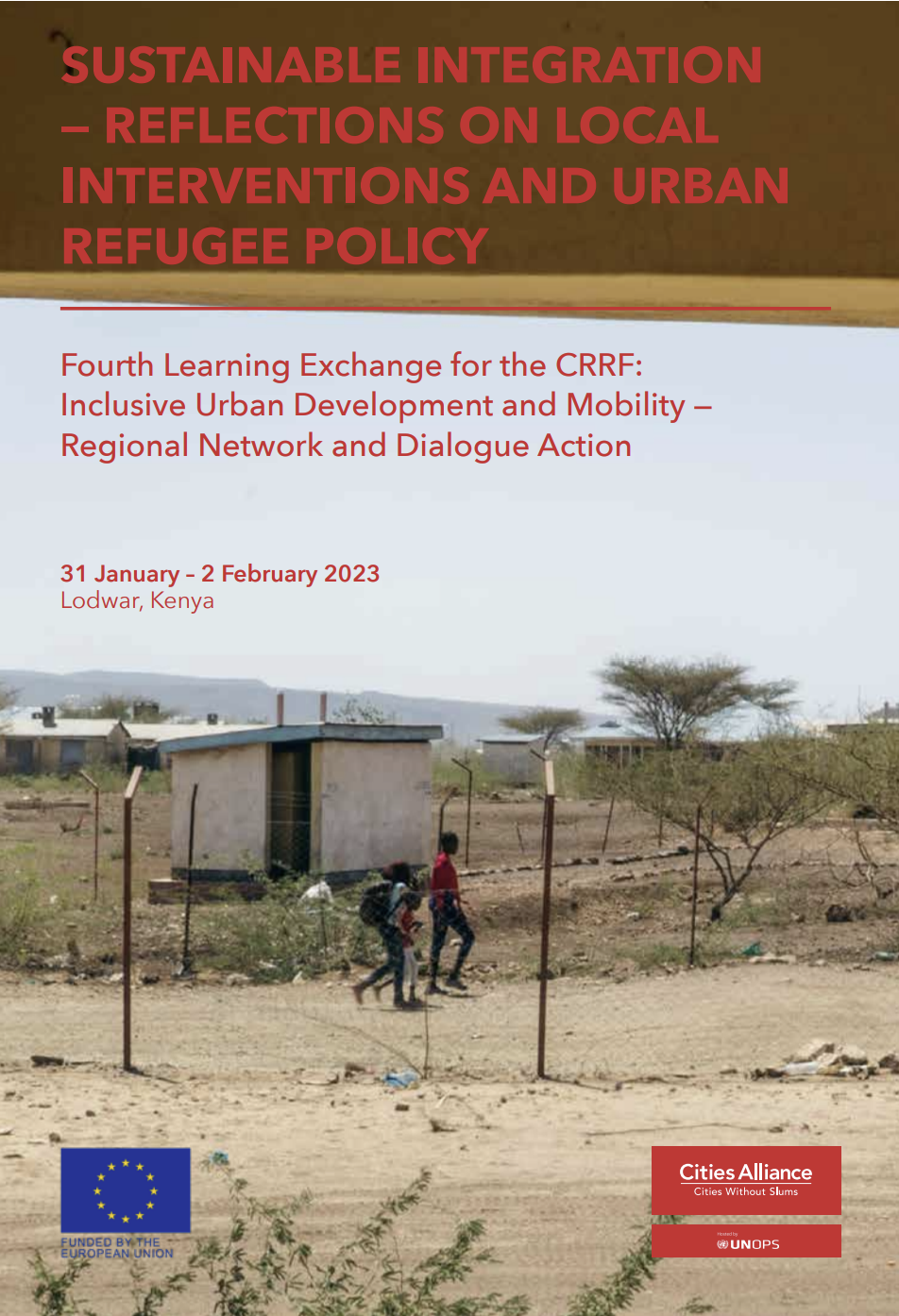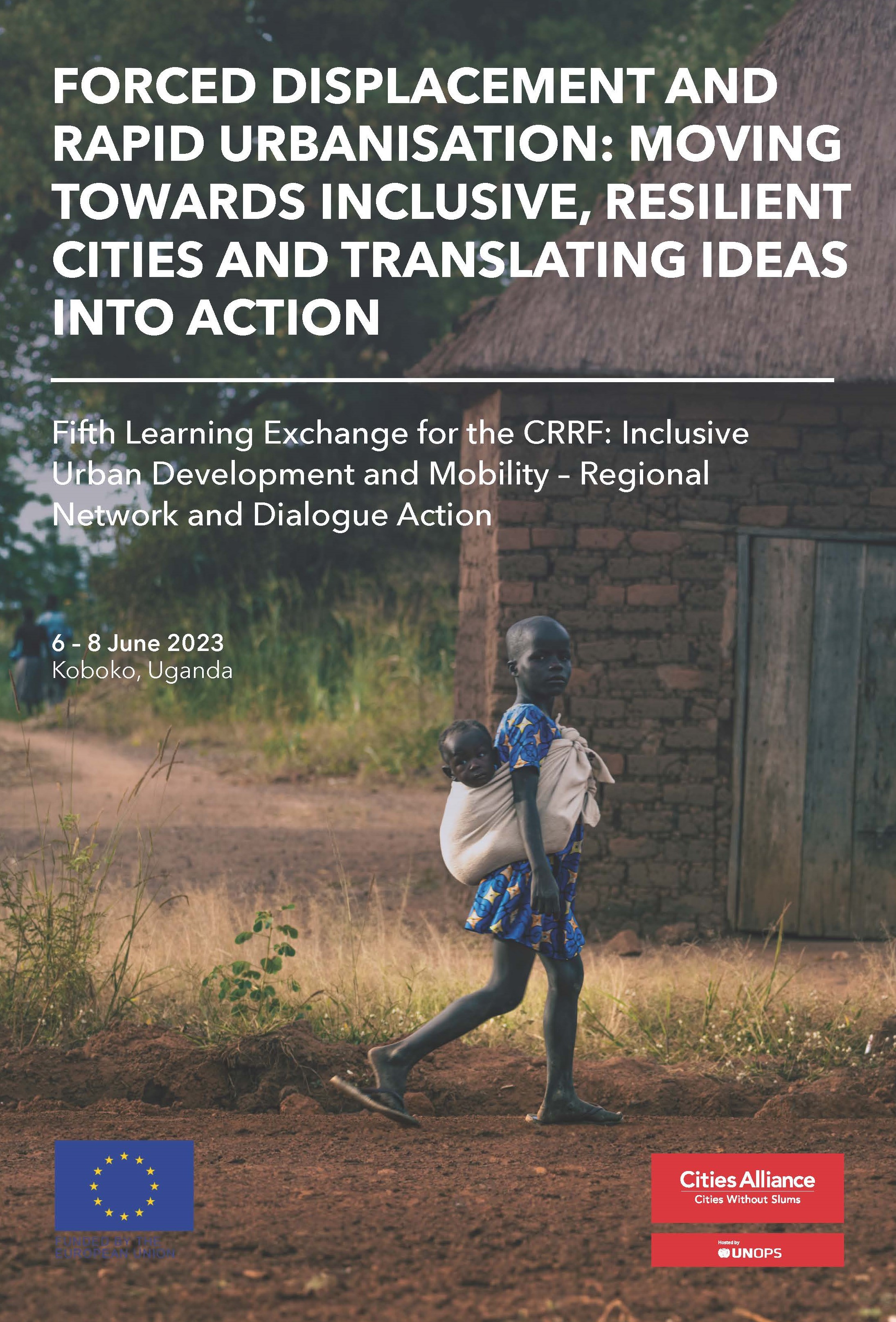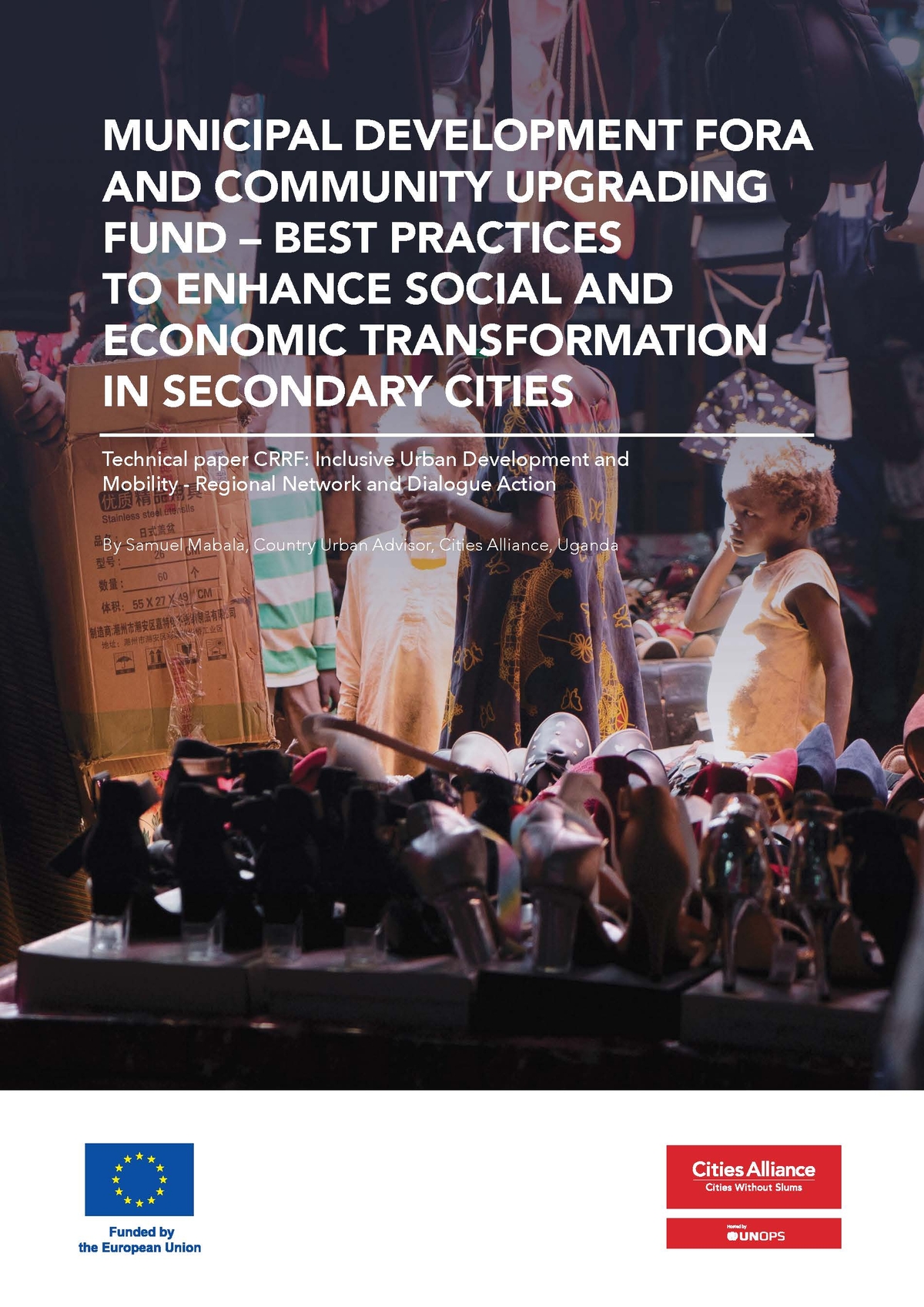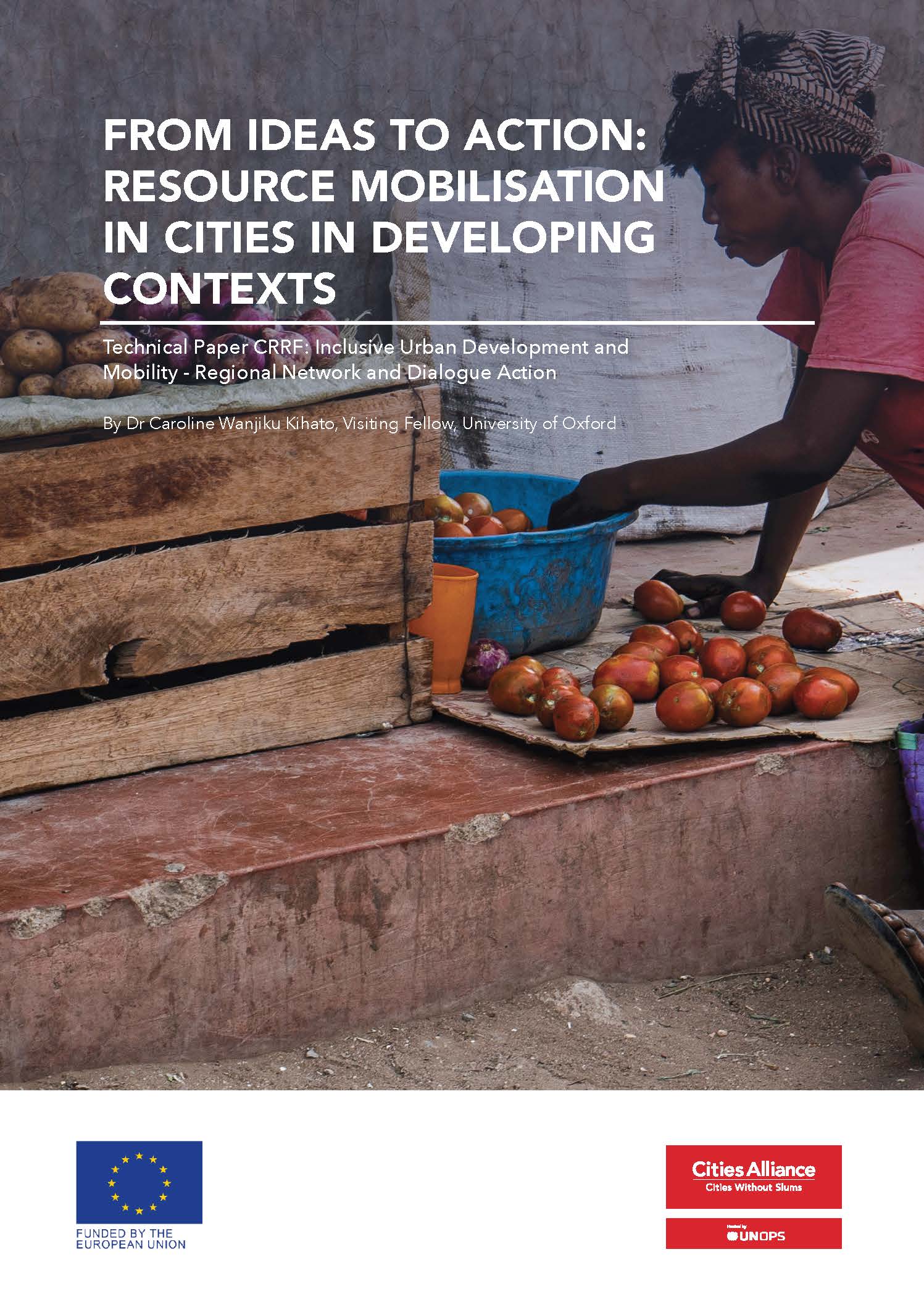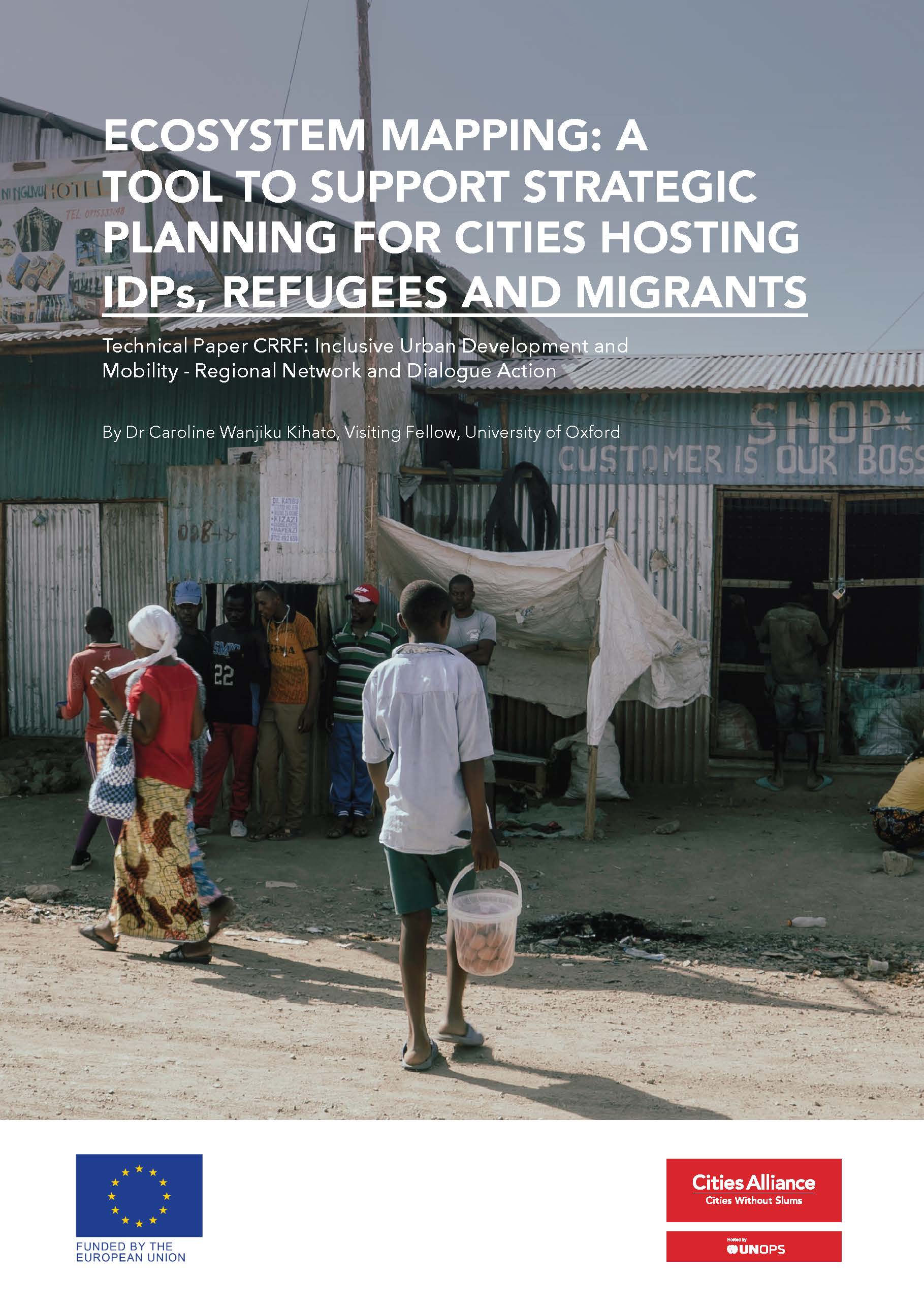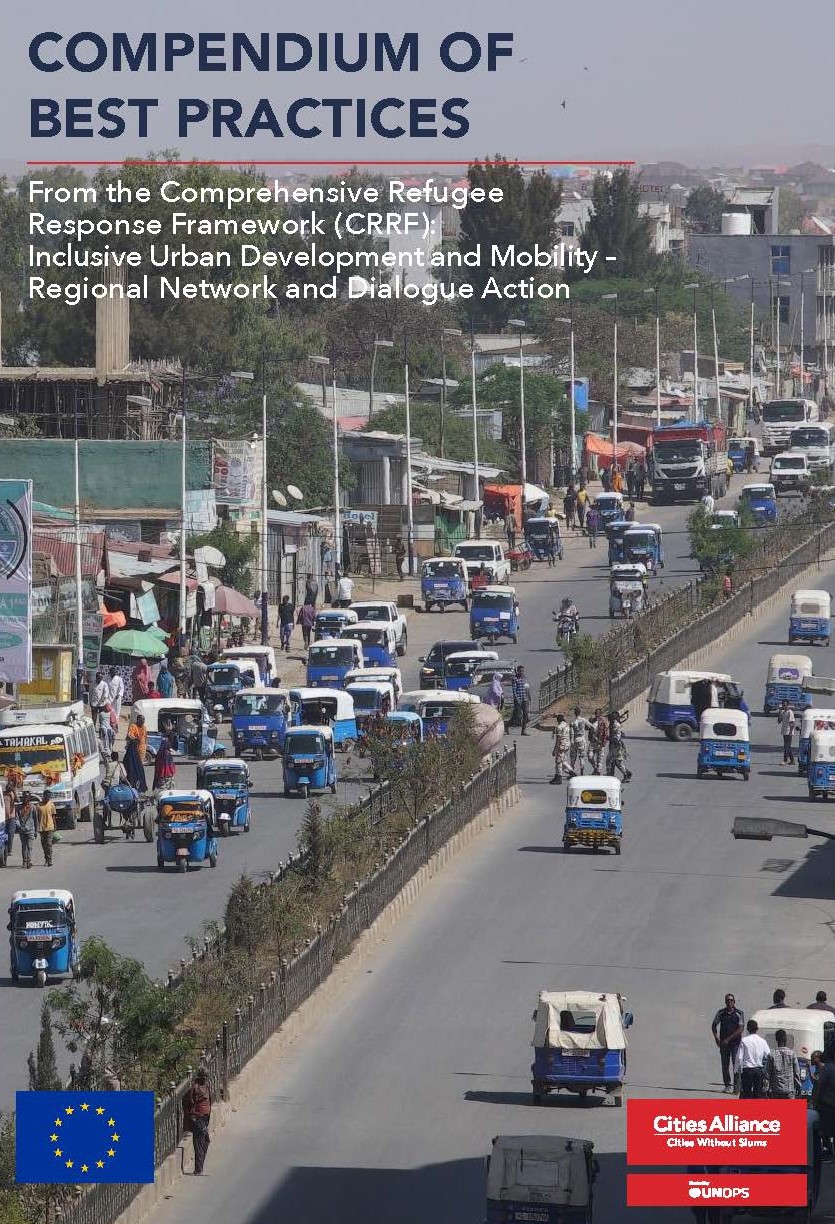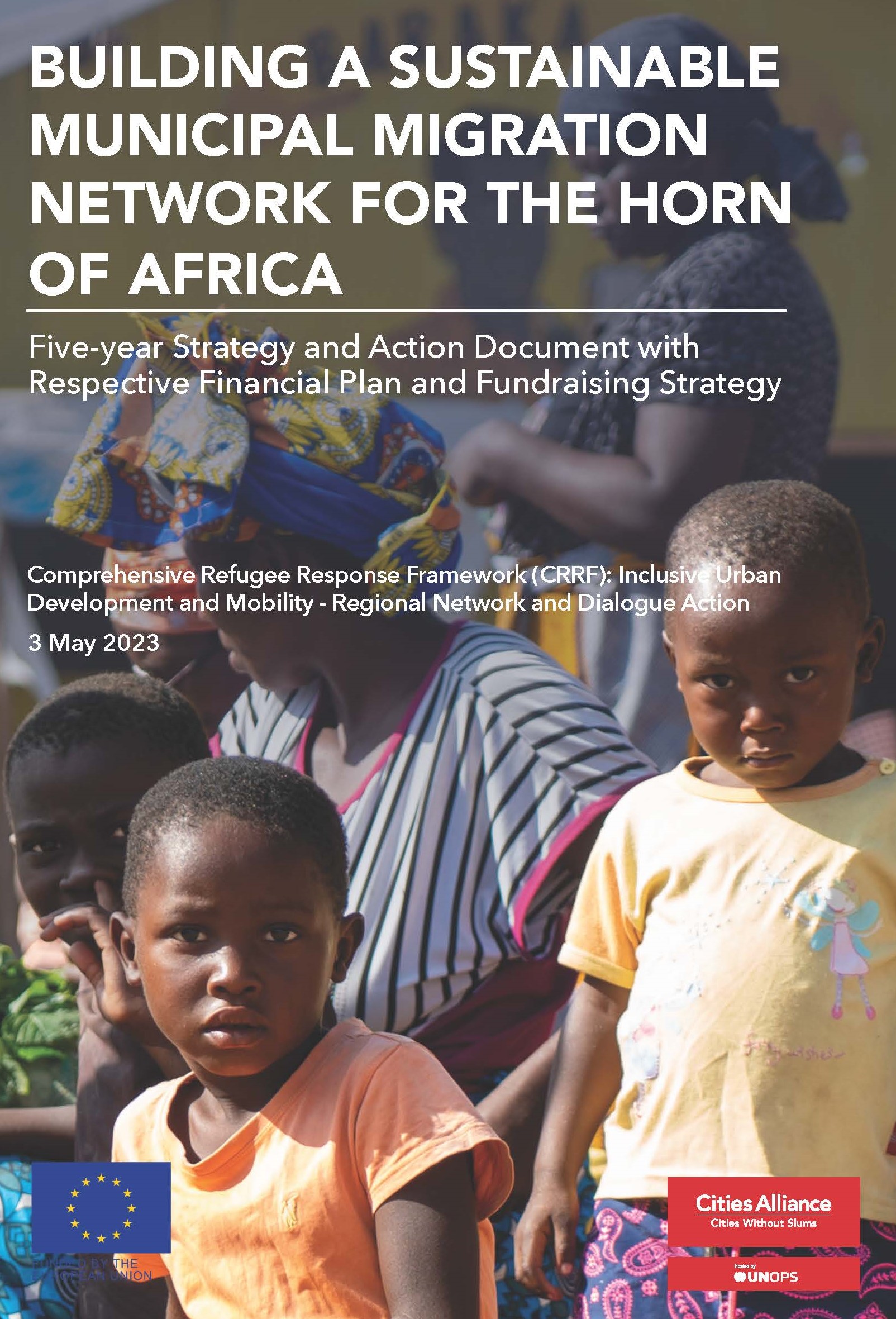The Comprehensive Refugee Response Framework (CRRF): Inclusive Urban Development and Mobility Action (2019–2023) addressed the refugee crisis in the Horn of Africa by supporting secondary cities to address the dual challenges of urbanisation and rising numbers of displaced persons.
It facilitated dialogues towards the integration of refugees and internally displaced persons (IDPs), urban planning, and service provision improvement in the cities of Arua and Koboko in Uganda, Assosa and Jigjiga in Ethiopia, Kakuma-Kalobeyei in Kenya, and Gabiley and Borama in Somalia.
The initiative included two pilot projects: one in Koboko, co-implemented by the Municipality of Koboko and ACAV; and a second in Assosa, implemented by the International Rescue Committee (IRC).
The Action was funded by the European Union Trust Fund for Africa (EUTF) and implemented by Cities Alliance.
At the city level, the initiative led to tangible improvements in refugees’ lives, promoted inclusive participation, and facilitated additional funding opportunities. At the regional level, it established a regional dialogue (implemented by Cities Alliance) that is fostering exchanges and lessons learned among cities. Through peer-learning events, cities enhanced their capacities and committed to continuing collaboration.
Internationally, the Action advanced the implementation of global agendas at the local level, highlighting the role of secondary cities in managing migration. City representatives of the regional dialogue participated in key events such as the African Review of the Global Compact on Migration (GCM), the Global Refugee Forum (GRF), and the Call to Local Action, demonstrating commitment to refugee integration.
Technical reports, workshop summaries, best practices, and a regional dialogue strategy were widely disseminated.
The Sustainable Integration of Displacement Affected Communities (SUIDAC) initiative, launched in 2024, builds on the CRRF Action and will be implemented in the Democratic Republic of the Congo (DRC), Ethiopia, Somalia, Sudan, and Uganda.

Components
The regional dialogue component supported the targeted cities in strengthening their voices and bringing national and international attention to their needs.
It also provided the cities with the opportunity to advocate at global debates such as the Global Refugee Forum. This visibility increased their international presence, improved their technical knowledge and capacities, and supported the implementation of global agendas.
The dialogue worked as a catalyst for refugee and host communities’ engagement in local planning activities and as a discussion forum and peer learning platform to exchange on needs, challenges, and potential solutions with the appropriate municipal, national, and regional actors.
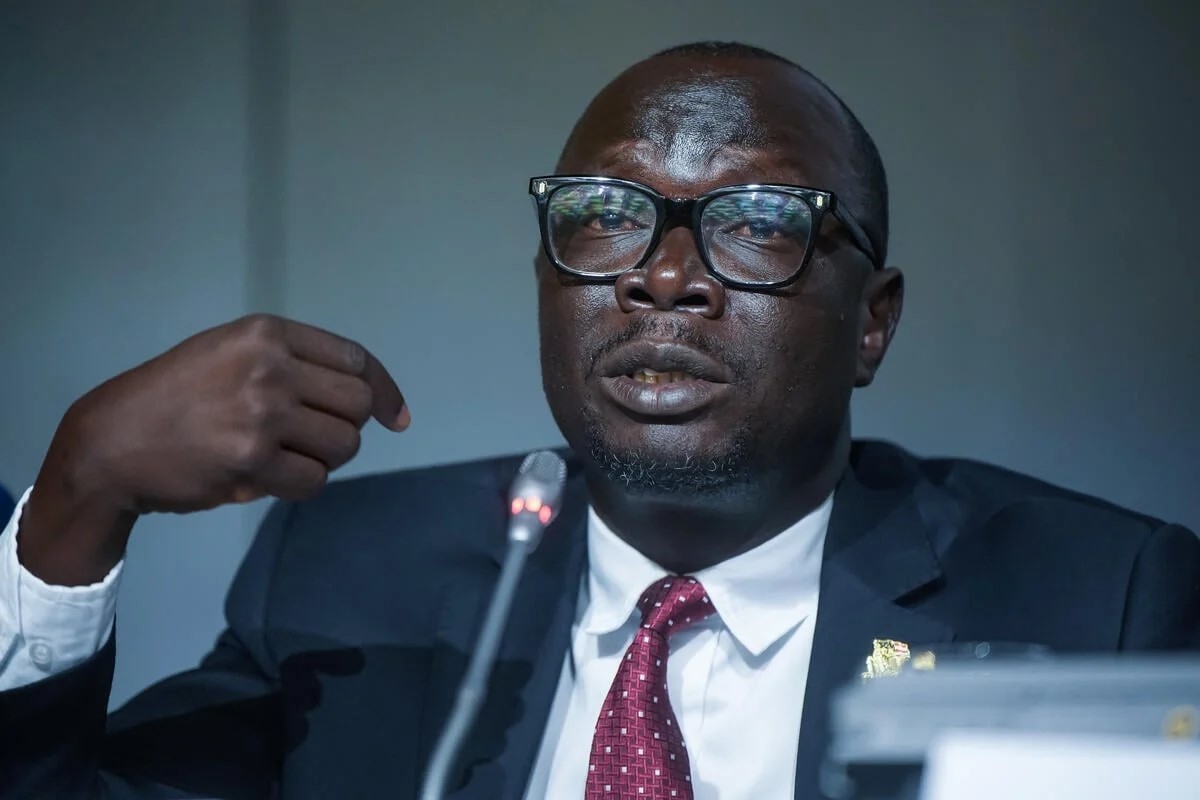
Koboko’s ability to receive direct funding from the EU was transformational and allowed my city to accomplish in two years what otherwise would have taken 40 … It is really all about inclusiveness. It is very simple and can be replicated anywhere.
Dr. Sanya Wilson, Mayor of Koboko, Uganda
A pilot project supported the Koboko Municipal Council (Uganda) through a direct grant managed by the municipality to improve urban planning and service delivery. The Municipal Council implemented this component with technical guidance from ACAV.
The EUTF funds boosted service delivery to Koboko’s growing urban population by supporting the municipal budget in various sectors, including education, health, livelihood, trade and industry, finance and planning, and inclusion and protection. The pilot was a successful example of ownership and localisation and allowed the municipality to lead the implementation of the Action’s activities.
A second pilot supported Assosa Municipality (Ethiopia) by strengthening public, private, and civil service delivery capacities, resources, and infrastructure for host communities and displaced populations in its urban and peri-urban settings. The International Rescue Committee led this component, with activities based on initial assessments that public service provision in Water, Sanitation and Hygiene (WASH), health, and protection were inadequate to meet the demands of Assosa’s rapidly growing population.
Learning Events
Technical Papers
Other Resources
Multimedia
The Municipality of Koboko, Uganda Wins the City and Mobility Award





